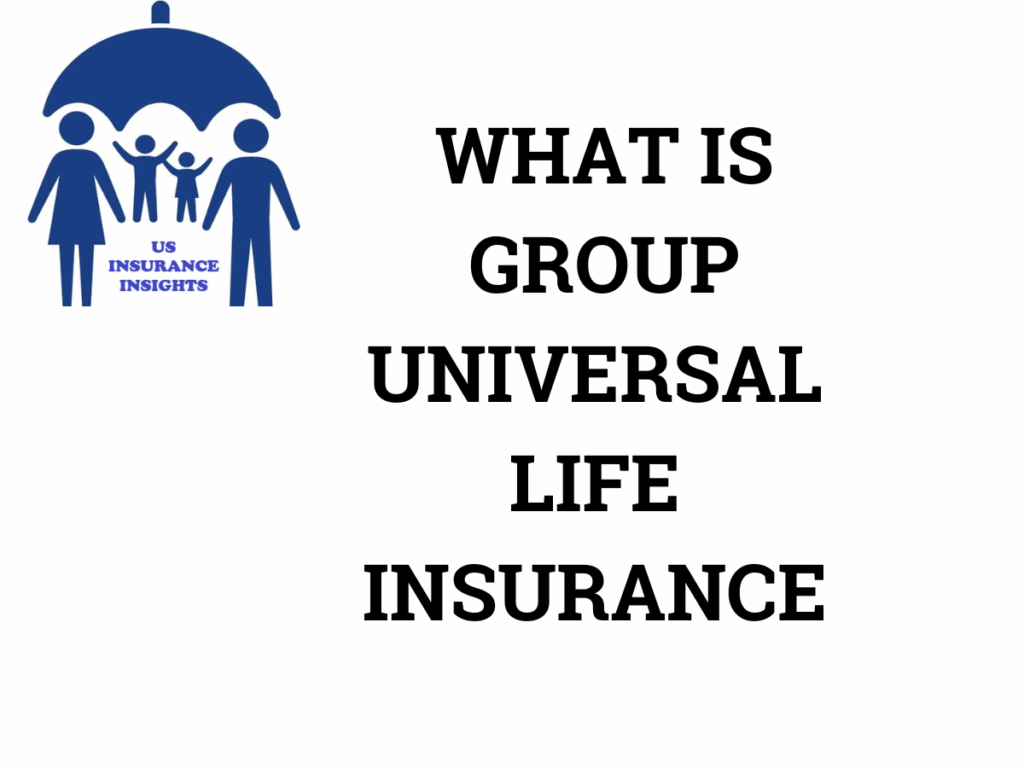What is group universal life insurance? Introduction
What is group universal life insurance and how does it actually help you and your family? You’ve likely come across this term in your company’s HR materials if you receive benefits. You may find this confusing, but don’t worry; I’ll use words anyone can understand so you’ll have no trouble deciding if it fits you well.
What Is Group Universal Life Insurance (for US)?
So, let’s look more closely at this. Since group universal life insurance is referred to as GUL insurance, it’s a flexible way to provide permanent life insurance to employees at their jobs. This product joins life insurance with a way to save or invest, so you have financial protection in two ways.
With GUL, you are guaranteed lifetime coverage and won’t need to pass a medical exam when you apply during the first few years or during open enrollment.
So, if you’ve ever asked, “What is group universal life insurance and do I need it?”—you’re in the right place.
Here’s why Group Universal Life Insurance is important.
Let’s talk to James. He works as a 34-year-old IT specialist at a Fortune 500 firm. He signed up for one of the standard, employer-paid life insurance plans to start. When he became a father, he thought it was best to acquire group universal life insurance by signing up at the next open enrollment.
Here’s what made it valuable to him:
Savings when you buy group airline tickets rather than buying them for just yourself
Helping the growing cost of college tuition
A mobile policy, meaning he can keep it with him if he switches companies
In James’s eyes, GUL was an important element of his large-scale financial plan.
How Group Universal Life Insurance Funcions
What attracts many employees to group universal life insurance? Let’s look at why speech is so important:
✅ Low Premiums
Your insurance costs are usually less since you are with a group. You’re certainly saving money on your commute.
✅ Certain Coverage with Never Needing a Medical Exam
You normally won’t require a medical exam when you sign up during your company’s open enrollment period. It can be great for you if you have health problems.
Earnings on Your Account Grows With Time
You have access to your policy’s cash value, whether to borrow or use in case of an emergency.
Contributions can be made at any time.
You might want to set a premium above the minimum and watch your savings increase sooner.
✅ Portability
Should I leave my job? No problem. It’s common for you to move the policy to a new location.
How Is Group Universal Life Insurance Offered?
To better evaluate it, let’s discuss its typical functions:
How much coverage you want is up to you. Usually, it’s figured out as a multiple of your annual income (1x, 2x or 3x).
Your insurance payments are made by taking money out of your paycheck. So easy there’s no need for thought.
Life insurance is a component of what you pay in premiums. The rest of your premium is deposited into a cash account.
The gain in your cash value is helped by the interest it earns. Inflation protection adjusts your interest rate when it’s fixed or variable, depending on your plan.
Certain employers let you put in extra money to help your cash value increase, much as in a tax-deferred savings account.
The advantages and disadvantages of Group Universal Life Insurance
There are many benefits to learning online, but it’s useful to evaluate the drawbacks before starting your course.
Pros:
Price per student discount
There’s no need to disclose your health or medical information.
Gradually adds value to the cash amount in the policy
Provides options to set your own payments and contributions.
🔹 Ready to take with you if you leave your employer
Cons:
When being part of a group life insurance plan, individual coverage gets less flexible than if you buy it yourself.
You may not have many choices for your investments.
If you stop paying for your insurance once you quit, the policy may end.
It’s not best suited for financing things you need right away such as a mortgage.
Should You Purchase Group Universal Life Insurance?
This type of life insurance is a good option for a variety of people, largely those:
Those who want to be protected permanently
When you have health problems that raise your private insurance costs
If you are still interested in other savings or retirement benefits
Anyone who prefers the simple solution of having their loan repayments automatically deducted from their salary
If you face certain challenges, it might not be right for you:
You are already protected with a term or whole life policy.
You need your money to grow faster than GUL can provide.
You want your notice period to be relaxed without the need for extra duties
A Guide to the Process of Enrolling in Group Universal Life Insurance
Step 1: Check Out What Is Included in Your Employer’s Benefits
Review the material provided during open enrollment. Compare group life insurance plans and find out how much they are.
Step 2: Figure Out How Much Insurance You Require
Calculate your life insurance using a life insurance calculator. Don’t let your imagination take over if you are not sure.
In Step 3, Check Whether You Are Eligible for Guaranteed Issue
You might find your eligibility approved automatically just by enrolling when the open enrollment period occurs.
Step 4: Get to Know the Policy’s Rules
What will you earn on the cash value of your policy? Is it possible to take inspiration from it? Can I move it? Ask questions.
Step 5: Remain or add limits on your payroll deductions
When available, putting extra cash in your policy on a monthly basis can increase your cash value sooner.
Move on to step 6 by either going to HR or using the website.
It is usually simple to sign up for these plans through your company’s online portal or by contacting HR.
Lisa’s Personal Experience: Living with Money
Lisa, at 42 years old and working as a nurse, bought group universal life insurance arranged by her hospital. She contributed an extra payment every month for ten years which made her cash value strong. She didn’t worry about paperwork: she borrowed against her insurance policy to pay his college fees easily.
Ways to get insurance other than Group Universal Life Insurance
Maybe GUL doesn’t fit your situation after all. Consider these:
When you buy term life, it’s easy on the budget, but there’s no future cash value.
If you choose whole life insurance, you get certain benefits, but it will likely have higher costs.
Controlling the policy with individual universal life insurance takes more effort and cost a little more than group life insurance.
FAQs
Does having a GUL policy mean it will be there even if I change jobs?
Most insurance policies can be kept and paid for personally, anywhere you move.
Is the plan certain to give me cash value when I retire?
In most cases, yes, but the growth depends on how the policy terms are set. Always get in touch with your medical service to check.
Q: Is it possible to choose any person as a beneficiary?
You can usually choose anyone you wish to be the beneficiary and it doesn’t have to be a family member.
Should You Do It?
So, what is group universal life insurance really? It’s easy to join and lets you get permanent coverage and save at the same time.
Should your employer give you the option and if you want to save money for the future, then it makes a lot of sense. Just ensure you know the details and review the small print. Like before, make sure your life insurance fits with what you hope to achieve financially.
Helpful Resources
Group Universal Life Insurance, defined by Investopedia.
The Policygenius Guide to Buying Life Insurance
NerdWallet offers a simple way to find the best life insurance for you.

